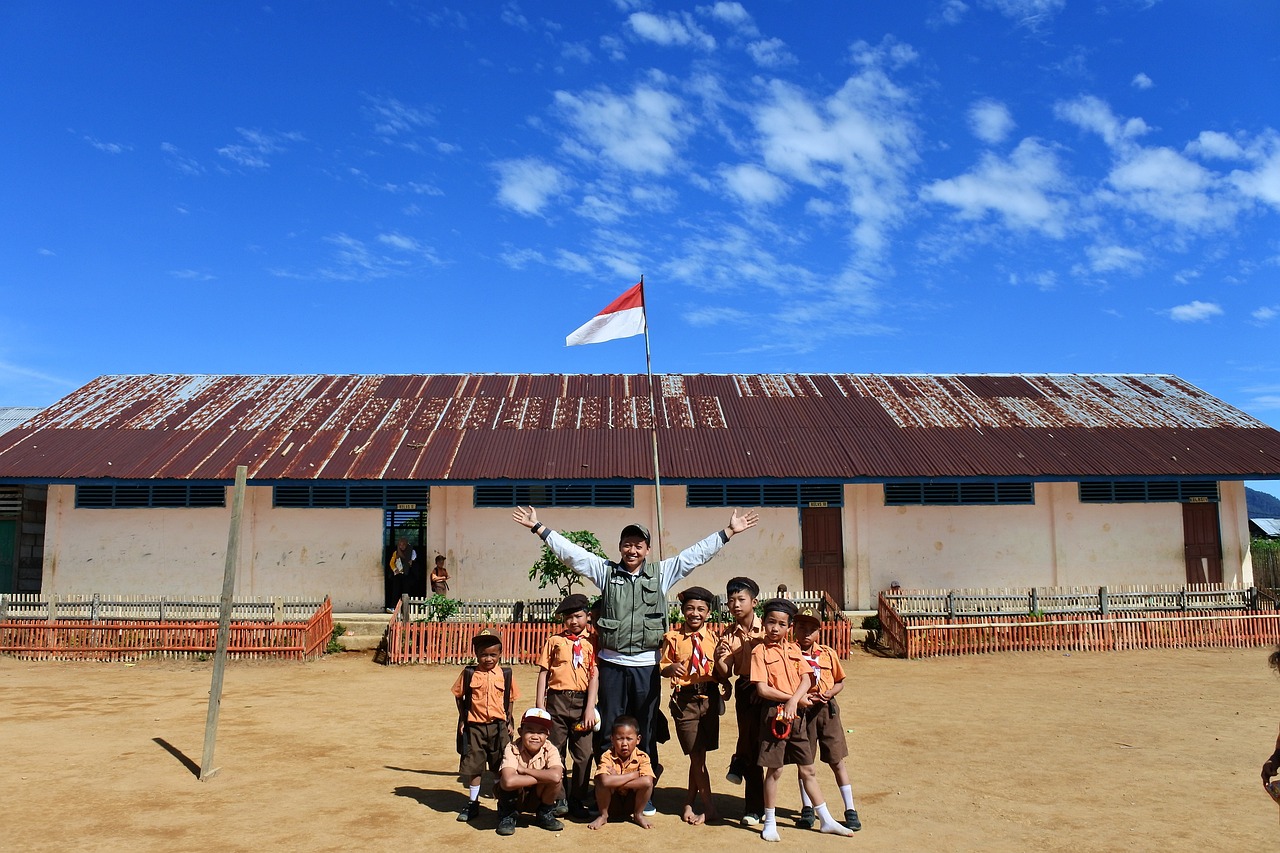Stay Productive: Time Management Tips in Indonesia
Indonesia, with its diverse culture and stunning landscapes, is a country that offers endless opportunities. However, in order to make the most of your time in Indonesia, it is important to have effective time management skills. Whether you are a student, a professional, or a traveler, staying productive can help you achieve your goals and make the most of your time in this beautiful country. In this article, we will explore some time management tips specifically tailored to Indonesia.
Understanding Indonesian Culture and Work Ethic
To effectively manage your time in Indonesia, it is crucial to understand the local culture and work ethic. Indonesians value relationships and tend to prioritize social interactions over strict adherence to schedules. This can sometimes lead to a more relaxed approach to time management. However, it is important to adapt to the local work culture while still maintaining your own productivity. Here are some tips to help you navigate the Indonesian work environment:
- Build strong relationships: Invest time in building relationships with your colleagues or business partners. Indonesians value trust and loyalty, and having strong connections can help you navigate the work environment more effectively.
- Be flexible: Embrace the local work culture and be open to unexpected changes or delays. Flexibility is key to adapting to the Indonesian work environment.
- Set clear expectations: Clearly communicate your expectations and deadlines to ensure that everyone is on the same page.
- Be patient: Understand that things may take longer than expected and practice patience when dealing with work-related matters.
Planning and Prioritizing
Effective planning and prioritization are essential for managing your time efficiently in Indonesia. Here are some tips to help you plan and prioritize effectively:
- Create a daily schedule: Start each day by creating a schedule that outlines your tasks and priorities. This will help you stay organized and focused throughout the day.
- Identify your most important tasks: Prioritize your tasks based on their importance and urgency. Focus on completing the most critical tasks first.
- Break tasks into smaller steps: If you have complex tasks, break them down into smaller, manageable steps. This will make them less overwhelming and easier to tackle.
- Use time management tools: Utilize time management tools such as calendars, to-do lists, or productivity apps to help you stay organized and track your progress.
Avoiding Procrastination
Procrastination can hinder your productivity and prevent you from making the most of your time in Indonesia. Here are some strategies to avoid procrastination:
- Set deadlines: Give yourself deadlines for completing tasks to create a sense of urgency and accountability.
- Break tasks into smaller chunks: Instead of overwhelming yourself with large tasks, break them down into smaller, manageable parts. This can make them feel less daunting and easier to start.
- Eliminate distractions: Minimize distractions by turning off notifications on your phone or computer, finding a quiet workspace, or using productivity apps that block certain websites or apps.
- Reward yourself: Set rewards for completing tasks or reaching milestones. This can motivate you to stay focused and avoid procrastination.
Effective Communication
Clear and effective communication plays a vital role in managing your time in Indonesia. Here are some tips for improving your communication skills:
- Practice active listening: Pay attention to what others are saying and make an effort to understand their perspective. Active listening can help you avoid misunderstandings and save time in the long run.
- Be concise: When communicating, be clear and concise to ensure your message is understood. Avoid unnecessary details or lengthy explanations.
- Ask for clarification: If you are unsure about something, don’t hesitate to ask for clarification. It is better to seek clarification upfront than to waste time on misunderstandings.
- Use non-verbal cues: Pay attention to non-verbal cues such as body language and facial expressions. They can provide valuable insights into the emotions and intentions of the person you are communicating with.
Managing Distractions
In a country as vibrant and diverse as Indonesia, it is easy to get distracted. Here are some strategies to manage distractions and stay focused:
- Create a dedicated workspace: Set up a designated workspace where you can minimize distractions and focus on your tasks.
- Establish boundaries: Communicate your boundaries to others and let them know when you need uninterrupted time to work or study.
- Practice mindfulness: Incorporate mindfulness techniques into your daily routine to improve focus and concentration.
- Take regular breaks: Schedule short breaks during your work or study sessions to recharge and avoid burnout.
Effective Goal Setting
Setting clear and achievable goals is essential for staying productive in Indonesia. Here are some tips for effective goal setting:
- Make goals specific and measurable: Clearly define your goals and make them measurable so that you can track your progress.
- Break long-term goals into smaller milestones: Divide long-term goals into smaller, more manageable milestones. This will make them feel more achievable and help you stay motivated.
- Set deadlines: Assign deadlines to your goals to create a sense of urgency and keep yourself accountable.
- Regularly review and adjust goals: Review your goals periodically and make adjustments as needed. This will ensure that your goals remain relevant and aligned with your priorities.
Stress Management
Managing stress is crucial for maintaining productivity in Indonesia. Here are some strategies to help you cope with stress:
- Practice self-care: Take care of your physical and mental well-being by getting enough sleep, eating nutritious food, and engaging in activities that relax and rejuvenate you.
- Exercise regularly: Engage in regular physical activity to reduce stress and boost your mood.
- Practice relaxation techniques: Incorporate relaxation techniques such as deep breathing, meditation, or yoga into your daily routine to reduce stress levels.
- Seek support: Reach out to friends, family, or professional support if you are feeling overwhelmed. Talking to someone can help alleviate stress and provide valuable perspective.
Maintaining Work-Life Balance
Balancing work and personal life is essential for overall well-being and productivity. Here are some tips to help you maintain a healthy work-life balance in Indonesia:
- Set boundaries: Clearly define your working hours and communicate them to your colleagues or clients. Avoid overworking and prioritize personal time.
- Schedule time for leisure and relaxation: Allocate specific time for activities that bring you joy and help you unwind.
- Disconnect from work: Create a clear separation between work and personal life by disconnecting from work-related tasks and notifications outside of working hours.
- Delegate tasks: If possible, delegate tasks to others to lighten your workload and create more time for personal activities.
Indonesia Image 1:

Adapting to Cultural Differences
Indonesia is a culturally diverse country with various customs and traditions. Adapting to cultural differences can enhance your experience in Indonesia and help you build meaningful connections. Here are some tips for adapting to cultural differences:
- Learn the local language: Even basic knowledge of the local language can go a long way in building rapport and showing respect to the locals.
- Observe and learn from locals: Observe how locals interact and behave in different situations. This can help you understand cultural norms and avoid unintentionally offending anyone.
- Show respect for local customs: Familiarize yourself with local customs and traditions and show respect by following them. This can help you integrate into the local community more smoothly.
- Be open-minded: Embrace new experiences and be open to different perspectives. This will enrich your time in Indonesia and help you develop a deeper understanding of the culture.
Indonesia Image 2:

Embracing Work-Life Integration
Work-life integration is an alternative approach to work-life balance that focuses on blending work and personal life harmoniously. Here are some tips for embracing work-life integration in Indonesia:
- Flexible work arrangements: Explore flexible work arrangements such as remote work or flexible hours. This can allow you to better integrate work and personal commitments.
- Set realistic expectations: Be realistic about what you can accomplish within a given timeframe and communicate your availability and limitations to others.
- Prioritize self-care: Make self-care a priority by incorporating activities that promote well-being into your daily routine. This can help you maintain balance and prevent burnout.
- Establish boundaries: Set clear boundaries between work and personal life to ensure that you have dedicated time for both aspects.
Exploring Indonesia’s Natural Wonders
Indonesia is known for its breathtaking natural wonders, including pristine beaches, lush rainforests, and majestic volcanoes. Here are some tips for exploring Indonesia’s natural wonders while managing your time effectively:
- Plan your itinerary: Research and plan your trips in advance to make the most of your time. Consider the distances between destinations and factor in travel time.
- Focus on quality over quantity: Instead of trying to visit multiple places in a short period, focus on fully experiencing and appreciating a few select destinations.
- Take advantage of local expertise: Seek recommendations from locals or hire local guides who can provide valuable insights and help you optimize your time.
- Be mindful of environmental impact: Respect nature and follow sustainable practices during your travels. Leave no trace and support eco-friendly initiatives.
Indonesia Image 3:

Conclusion
Effective time management is crucial for staying productive and making the most of your time in Indonesia. By understanding the local culture and work ethic, planning and prioritizing tasks, avoiding procrastination, practicing effective communication, managing distractions, setting goals, managing stress, maintaining work-life balance, adapting to cultural differences, embracing work-life integration, and exploring Indonesia’s natural wonders, you can enhance your productivity and have a fulfilling experience in this vibrant country.
References
– Time Management Ninja (timemanagementninja.com)
– Mind Tools (mindtools.com)
– Small Business Trends (smallbiztrends.com)
– Work Awesome (workawesome.com)
– Forbes (forbes.com)

